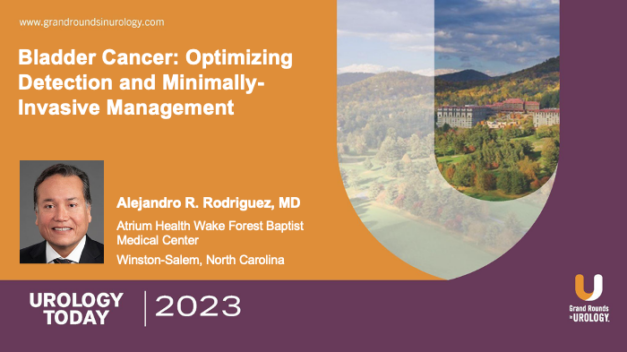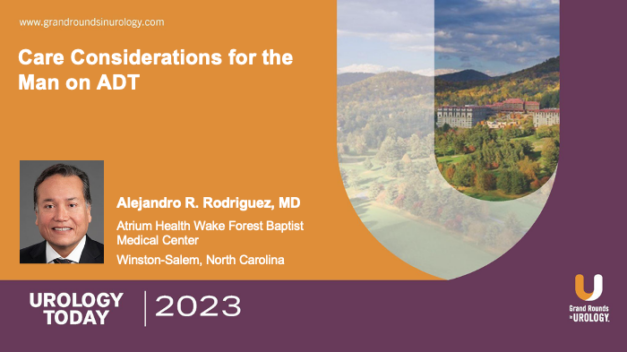Bladder Cancer: Optimizing Detection and Minimally-Invasive Management
Alejandro R. Rodriguez, MD, discusses detection and minimally invasive management of bladder cancer. Dr. Rodriguez begins by noting that bladder cancer is the 10th most-commonly diagnosed cancer worldwide, and presents the American Urological Association (AUA) risk stratification that provides the basis for non-muscle-invasive bladder cancer (NMIBC) management.
Dr. Rodriguez notes that the most frequent treatment for NMIBC is Transurethral Resection of Bladder Tumor (TURBT.) While he contends that conventional TURBT is the best tool for clinical staging of NMIBC, he enumerates the risks and drawbacks of the procedure.
Dr. Rodriguez then describes narrow-band imaging (NBI) as an additional modality, and presents data showing that TURBT performed in NBI modality reduces NMIBC recurrence risk. Further, NBI with white light cystoscopy TURBT may lower recurrence risk with little-to-no effect on risks of adverse events.
Finally, Dr. Rodriguez turns to the role of TUR in muscle-invasive bladder cancer (MIBC), with a focus on clinical staging, histology and grade, and bladder preservation options. He notes that trimodality therapy is the primary option for patients with MIBC that seek bladder preservation as an alternative to radical cystectomy.
Read More

